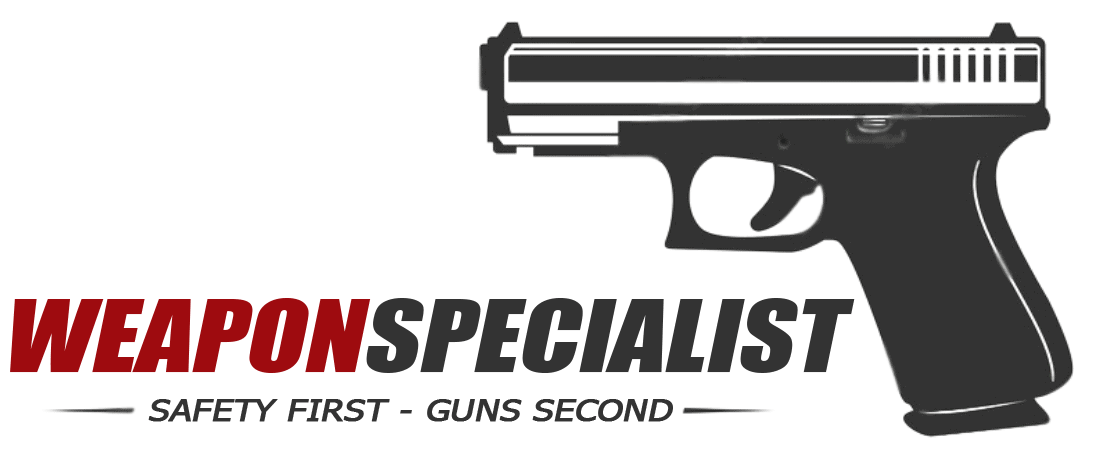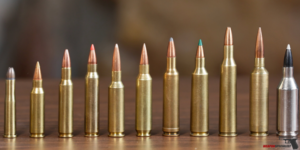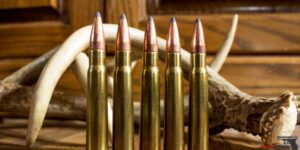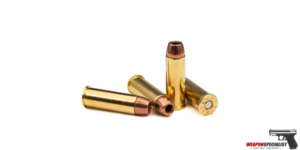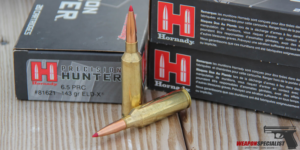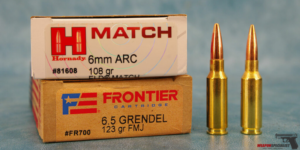As gun enthusiasts, we know that different types of ammunition are designed for different purposes. 9mm ammo is no exception. With so many different types of 9mm ammo available, it can be challenging to know which one to choose.
In this article, weaponspecialist.org will explore the different types of 9mm ammo and the key considerations when choosing the right one for your firearm.
Understanding 9mm ammo is essential for any gun owner. The 9mm cartridge was first introduced in 1902 by the German weapons manufacturer DWM for their Luger semi-automatic pistol.
Since then, it has become one of the most popular cartridges in the world, used by law enforcement agencies, militaries, and civilians alike. With the right type of 9mm bullets, you can ensure that your firearm is performing at its best and that you are prepared for any situation.
When it comes to choosing the right 9mm ammo, there are several key considerations to keep in mind. These include the intended use of the ammunition, the type of firearm you have, and the manufacturer of the ammo. By understanding these factors, you can make an informed decision about which type of 9mm bullet is right for you.
Key Takeaways
- Understanding the different types of 9mm ammo is essential for gun owners.
- Key considerations when choosing 9mm bullet include intended use, firearm type, and manufacturer.
- Choosing the right 9mm ammo can ensure that your firearm is performing at its best and that you are prepared for any situation.
What is 9mm Ammo?
As firearm enthusiasts, we know that choosing the right ammunition is just as important as choosing the right firearm. When it comes to 9mm ammo, there are a few things to keep in mind to ensure you are selecting the best option for your needs.
First and foremost, let’s discuss the basics. The 9mm round is a popular caliber that measures 9 millimeters in diameter. It is also known as 9×19 or 9mm Parabellum. The 9mm round has been in use since the early 1900s and has become a standard for military, law enforcement, and civilian use.
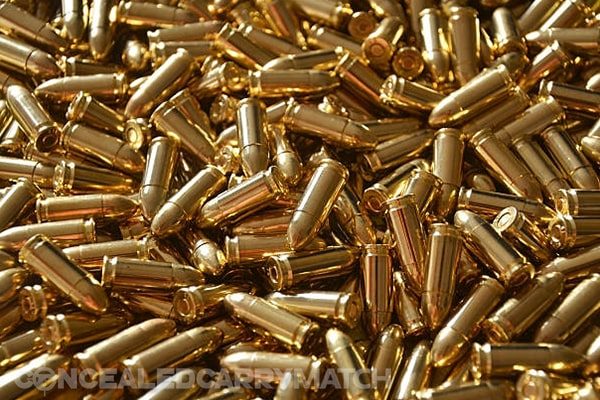
When it comes to selecting 9mm bullet, there are a few things to consider. One of the most important factors is the case length. The standard case length for 9mm ammo is 19mm, but there are variations such as the 9x21mm and the 9mm Browning Long. It’s important to ensure that the ammo you select matches the case length of your firearm.
Another factor to consider is the type of bullet. 9mm ammo can come in various weights and shapes, such as hollow point or full metal jacket.
The weight of the bullet can also vary, with options ranging from 115 grains to 147 grains. It’s essential to select a bullet that matches your intended use, whether it be for self-defense or target shooting.
It’s also important to note that there are different types of 9mm ammo, such as the 9mm Luger and the 9mm NATO. While these rounds are similar to the standard 9mm round, there may be slight differences in pressure and velocity. It’s crucial to select the appropriate ammo for your firearm to ensure safe and reliable operation.
In conclusion, selecting the right 9mm bullet requires careful consideration of factors such as case length, bullet type, and intended use. By taking the time to understand these factors, you can ensure that you are selecting the best option for your needs.
Types of 9mm Ammo
When it comes to 9mm ammo, there are several types available on the market. Each type of 9mm bullet has its own unique characteristics and is designed for specific purposes. In this section, we will discuss the different types of 9mm ammo and their uses.
Full Metal Jacket (FMJ)
Full Metal Jacket (FMJ) is the most common type of 9mm ammo. It is designed for target shooting, training, and plinking. The bullet is made of a lead core that is encased in a copper jacket.
This type of ammo is known for its accuracy and reliability. FMJ bullets are also less expensive than other types of 9mm ammo.
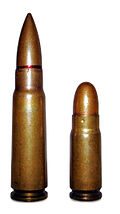
Jacketed Hollow Point (JHP)
Jacketed Hollow Point (JHP) is a popular type of 9mm ammo for self-defense. The bullet is designed to expand upon impact, creating a larger wound channel and increasing stopping power.
The jacketed hollow point design also helps to prevent over-penetration, making it safer for use in home defense situations. JHP bullets are more expensive than FMJ bullets.
Frangible
Frangible 9mm ammo is designed to break apart upon impact with a hard surface. This type of ammo is often used in indoor shooting ranges where ricochets are a concern. Frangible bullets are made of compressed copper powder and are less likely to cause injury to bystanders.
Soft Point
Soft Point 9mm ammo is similar to FMJ ammo but has a partially exposed lead core. This design allows the bullet to expand upon impact, creating a larger wound channel. Soft Point ammo is often used for hunting, as it is effective at taking down small game.
Open Tip Match
Open Tip Match (OTM) 9mm ammo is designed for precision shooting. The bullet has an open tip, which allows for greater accuracy at longer distances. OTM ammo is often used in competition shooting and is more expensive than other types of 9mm bullet.
Ballistic Tip
Ballistic Tip 9mm ammo is similar to JHP ammo but has a polymer tip that enhances accuracy and increases the bullet’s ability to expand upon impact. This type of ammo is often used for hunting and self-defense.
In conclusion, there are several types of 9mm ammo available on the market, each with its own unique characteristics and uses. Whether you are target shooting, training, hunting, or in a self-defense situation, there is a type of 9mm bullet that is right for you.
Key Considerations When Choosing 9mm Ammo
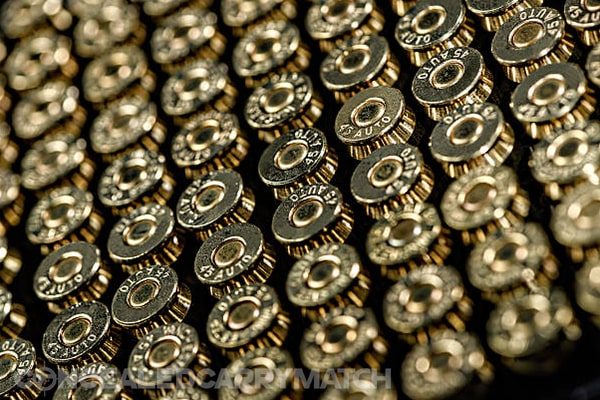
When choosing 9mm ammo, there are several key factors to consider. Here are some of the most important things to keep in mind:
Purpose
The first thing to consider when choosing 9mm bullet is the purpose for which it will be used. Are you using it for target shooting, self-defense, or something else? Different types of ammo are designed for different purposes, so it’s important to choose the right one for your needs.
Cost
Another important consideration when choosing 9mm ammo is cost. Some types of ammo are more expensive than others, so it’s important to find a balance between quality and cost-effectiveness. Keep in mind that the cheapest option may not always be the best choice.
Recoil
Recoil is another important factor to consider when choosing 9mm bullet. Some types of ammo have more recoil than others, which can affect accuracy and overall shooting experience. If you’re sensitive to recoil, consider choosing a type of ammo that has less kick.
Penetration Depth
Penetration depth is an important consideration when choosing 9mm ammo for self-defense. You want to choose a type of ammo that will penetrate deep enough to stop an attacker, but not so deep that it poses a risk to bystanders. Look for ammo that has a good balance of penetration depth and expansion.
Expansion
Bullet expansion is another important factor to consider when choosing 9mm ammo for self-defense. You want to choose a type of ammo that will expand upon impact, creating a larger wound channel and increasing the likelihood of stopping an attacker. Look for ammo that has a good balance of expansion and penetration depth.
Weight
Finally, consider the weight of the ammo when choosing 9mm ammo. Some types of ammo are heavier than others, which can affect accuracy and overall shooting experience. Choose a type of ammo that feels comfortable and balanced in your firearm.
Overall, when choosing 9mm bullet, it’s important to consider your specific needs and preferences. By taking into account factors like purpose, cost, recoil, penetration depth, expansion, and weight, you can choose the type of ammo that’s right for you.
9mm Ammo for Different Firearms
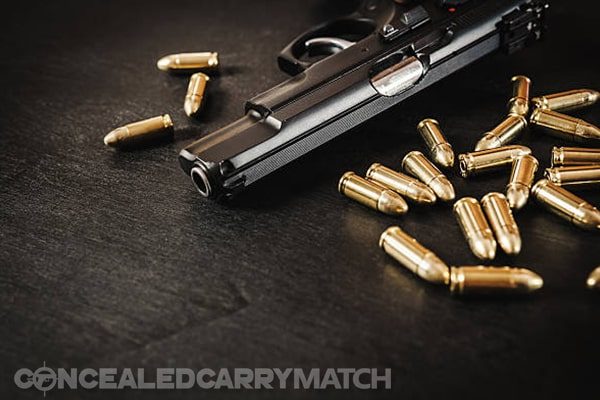
When it comes to 9mm bullet, there are several types of firearms that can use it effectively. In this section, we will discuss the 9mm ammo that is best suited for different firearms.
Handguns
9mm handguns are a popular choice for self-defense, and there are several types of 9mm ammo that are suitable for use in these firearms.
Full metal jacket (FMJ) rounds are a good choice for target shooting and range training, while jacketed hollow point (JHP) rounds are ideal for self-defense.
JHP rounds are designed to expand upon impact, creating a larger wound channel and increasing the likelihood of stopping an attacker.
Pistols
Pistols are another type of firearm that can use 9mm ammo. The Ruger LC9 and the Glock 19 are two popular 9mm pistols that can handle a variety of ammo types.
For self-defense purposes, we recommend using JHP rounds. These rounds are designed to expand upon impact, creating a larger wound channel and increasing the likelihood of stopping an attacker.
Rifles
While 9mm ammo is typically associated with handguns and pistols, there are also rifles that can use this type of ammunition. The Ruger PC Carbine and the Beretta CX4 Storm are two popular 9mm rifles that can handle a variety of ammo types.
For target shooting and range training, we recommend using FMJ rounds. These rounds are designed to penetrate targets and provide consistent accuracy.
In conclusion, when choosing 9mm bullet for different firearms, it is important to consider the intended use of the firearm. For self-defense purposes, we recommend using JHP rounds.
For target shooting and range training, FMJ rounds are a good choice. Always make sure to choose the appropriate ammo for your firearm to ensure safe and effective use.
Popular 9mm Ammo Brands
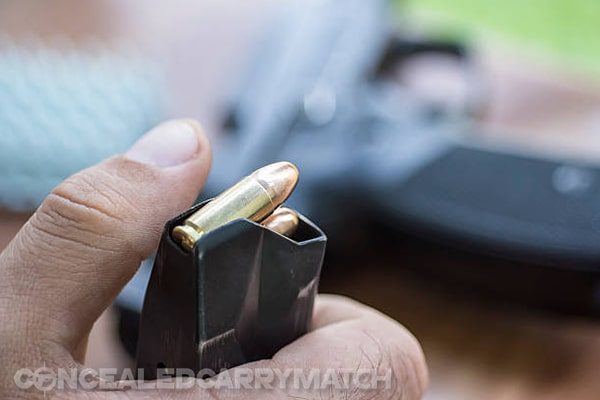
When it comes to 9mm ammo, there are a lot of brands to choose from. Here are some of the most popular ones:
Winchester’s 9mm Luger ammo
Winchester is a well-known brand in the firearms industry. They offer a wide range of 9mm bullet options, including full metal jacket (FMJ) and jacketed hollow point (JHP) rounds. Their 9mm Luger ammo is particularly popular among gun owners.
Remington’s 9mm Luger ammo
Remington is another popular brand that offers 9mm ammo. They have a variety of options, including their Golden Saber line of JHP rounds. Remington’s 9mm Luger ammo is a favorite among gun enthusiasts and law enforcement agencies.
Sig Sauer’s 9mm Luger ammo
Sig Sauer is a top-tier brand that produces high-quality firearms and ammunition. Their 9mm bullet options include FMJ and JHP rounds, as well as their V-Crown line of hollow point rounds. Sig Sauer’s 9mm Luger ammo is a popular choice for both self-defense and target shooting.
American’s 9mm Luger ammo
American is a newer brand that has quickly gained popularity among gun owners. They offer a variety of 9mm ammo options, including their X-Treme line of FMJ rounds. American’s 9mm Luger ammo is known for its reliability and accuracy.
Speer’s 9mm Luger ammo
Speer is a trusted brand that has been around for over 70 years. They offer a wide range of 9mm ammo options, including their Gold Dot line of JHP rounds. Speer’s 9mm Luger ammo is a popular choice among law enforcement agencies and self-defense enthusiasts.
Federal Premium’s 9mm Luger ammo
Federal Premium is a well-respected brand that produces high-quality ammunition. Their 9mm ammo options include FMJ and JHP rounds, as well as their HST line of hollow point rounds. Federal Premium’s 9mm Luger ammo is known for its accuracy and consistency.
Hornady’s 9mm Luger ammo
Hornady is a popular brand that produces a variety of ammunition, including 9mm rounds. They offer a range of options, including their Critical Defense line of JHP rounds. Hornady’s 9mm Luger ammo is a popular choice for both self-defense and target shooting.
Overall, these brands offer reliable and high-quality 9mm ammo options. Gun owners should choose the brand and type of ammo that best fits their needs and preferences.
9mm Ammo in Law Enforcement and Military

NATO
As a standard pistol cartridge of the North Atlantic Treaty Organization (NATO), 9mm ammunition is widely used by military and law enforcement personnel around the world.
The 9mm NATO round is similar to the 9mm Luger, but with a slightly longer case and a higher pressure load. This allows for higher muzzle velocity and better accuracy over longer distances.
FBI Protocol
The Federal Bureau of Investigation (FBI) has strict protocols for ammunition used by its agents. The FBI uses 9mm ammunition that meets their specific requirements for penetration, expansion, and accuracy.
The FBI protocol requires 12-18 inches of penetration in ballistic gel and must expand to at least .65 inches in diameter. This protocol ensures that the ammunition is effective in stopping a threat while minimizing the risk of over-penetration.
Law Enforcement Agencies
Law enforcement agencies across the United States commonly use 9mm ammunition due to its effectiveness and affordability.
Many agencies have transitioned from .40 caliber to 9mm due to advances in bullet technology, which have made 9mm ammunition more effective in stopping a threat.
Additionally, 9mm ammunition is easier to shoot accurately and with less recoil, making it a popular choice for law enforcement officers.
In conclusion, 9mm ammunition is widely used in law enforcement and military settings due to its effectiveness, affordability, and ease of use.
The 9mm NATO round is used as a standard cartridge by NATO members, while the FBI protocol requires specific requirements for ammunition used by their agents.
Law enforcement agencies across the United States commonly use 9mm ammunition due to its effectiveness and affordability.
The Impact of Barrel Length on 9mm Ammo
When it comes to 9mm ammo, barrel length can have a significant impact on its performance. In general, longer barrels tend to produce higher velocities, resulting in increased accuracy and stopping power. However, there are some trade-offs to consider when selecting a barrel length.
Shorter barrels are more compact and easier to maneuver, making them ideal for concealed carry or home defense. However, they may sacrifice some velocity and accuracy compared to longer barrels. For example, a 3.5-inch barrel may produce velocities around 1,000 feet per second (fps), while a 5-inch barrel may produce velocities around 1,200 fps.

On the other hand, longer barrels may be more accurate and produce higher velocities, but they can be more cumbersome and difficult to handle. For example, a 16-inch barrel may produce velocities around 1,600 fps, but it may be too long for practical use in most scenarios.
It’s important to note that the specific type of 9mm ammo being used can also impact barrel length performance. Different types of ammo have different weights, shapes, and compositions, which can affect how they perform in different barrel lengths.
For example, hollow point ammo may perform better in shorter barrels, while full metal jacket ammo may perform better in longer barrels.
Ultimately, the best barrel length for 9mm bullet depends on the intended use and personal preference. It’s important to consider factors such as velocity, accuracy, maneuverability, and practicality when selecting a barrel length.
By weighing the pros and cons of different barrel lengths and types of 9mm ammo, we can make an informed decision that meets our specific needs and preferences.
The Role of 9mm Ammo in World War II
During World War II, the 9mm ammo played a crucial role in the battlefields. It was the standard cartridge for most of the Axis and Allied powers, and it was used in various firearms, including the Luger pistol, the Smith & Wesson Model 39, and the Sten submachine gun.
The Luger pistol, chambered in 9×19 mm, was one of the most iconic firearms of World War II. It was used by the German military, and it was known for its accuracy and reliability.
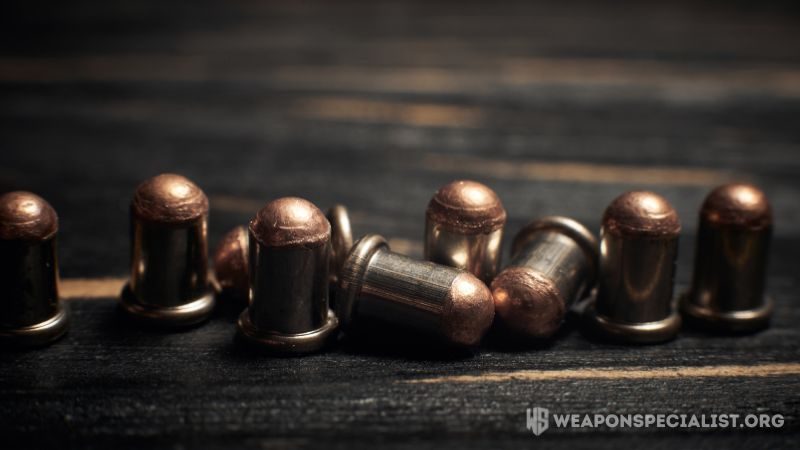
The 9mm ammo used in the Luger pistol was also used in other German firearms, including the MP 40 submachine gun and the MG 34 and MG 42 machine guns.
On the Allied side, the Smith & Wesson Model 39 was one of the most widely used firearms that used 9mm ammo. It was used by the United States military, and it was known for its accuracy and ease of use. The 9mm bullet used in the Smith & Wesson Model 39 was also used in other American firearms, including the M3 submachine gun and the Browning Hi-Power pistol.
The Sten submachine gun was another firearm that used 9mm ammo during World War II. It was used by the British military, and it was known for its simplicity and low cost.
The 9mm bullet used in the Sten submachine gun was also used in other British firearms, including the Lanchester submachine gun and the Webley revolver.
Overall, the 9mm ammo played a critical role in World War II. It was used in various firearms by both the Axis and Allied powers, and it was known for its accuracy, reliability, and ease of use.
Understanding Industry Standards for 9mm Ammo
As a responsible gun owner, it’s important to understand the industry standards for 9mm ammo. This knowledge will help you choose the right ammunition for your firearm, ensuring that you’re using it safely and effectively.
One of the most critical industry standards for 9mm ammo is pressure. The pressure of a cartridge is measured in pounds per square inch (PSI). The Sporting Arms and Ammunition Manufacturers’ Institute (SAAMI) sets the standards for maximum pressure levels for different types of ammunition.
It’s essential to use ammunition that operates within SAAMI’s pressure guidelines to avoid damaging your firearm or injuring yourself.
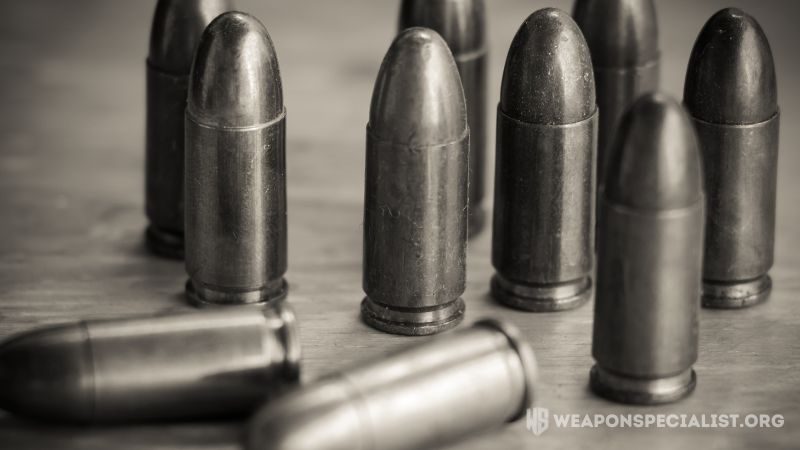
Another important industry standard for 9mm bullet is +P. +P stands for “plus pressure,” and it indicates that the cartridge has a higher pressure level than standard ammunition.
While +P ammo can provide greater velocity and energy, it’s crucial to ensure that your firearm is rated for its use. Not all firearms are designed to handle the increased pressure of +P ammo, and using it in an incompatible firearm can be dangerous.
When purchasing 9mm ammo, it’s essential to look for products that meet industry standards. Reputable manufacturers will indicate whether their ammunition meets SAAMI guidelines and whether it’s +P rated. You can also consult with your firearm’s manufacturer to determine the appropriate ammunition for your firearm.
In conclusion, understanding industry standards for 9mm ammo is crucial for responsible gun ownership. By adhering to these standards, you can ensure that you’re using your firearm safely and effectively. Remember to always use ammunition that meets SAAMI guidelines and to check whether your firearm is rated for +P ammo before using it.
The Versatility of 9mm Ammo
As a popular centerfire pistol cartridge, the 9mm ammo has gained a lot of popularity over the years due to its versatility. We can use it for a wide range of purposes, from self-defense to target shooting.
One of the reasons why the 9mm bullet is so versatile is its reliability. It has been around for over a century, and it has proven to be a reliable cartridge for many firearms. It is also available in a wide range of bullet weights and designs, which makes it suitable for different firearms and intended uses.
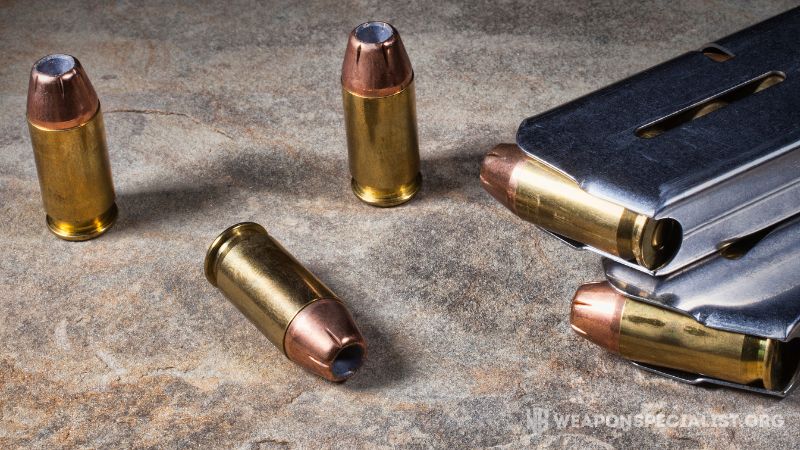
When it comes to power, the 9mm ammo can be divided into three classes: light, medium power, and supersonic and heavyweights. The light 9mm bullet is suitable for target shooting, while the medium power and supersonic and heavyweights are best reserved for self-defense purposes.
The 9mm ammo is also very effective, with maximum penetration and terminal performance. It achieves this by balancing bullet weight, velocity, and design, resulting in a cartridge that can effectively stop a threat.
In terms of capacity, the 9mm bullet is an excellent choice for firearms with high-capacity magazines. It allows us to carry more rounds without sacrificing stopping power.
Another reason why the 9mm ammo is so versatile is its bulk. It is a relatively small cartridge, which makes it easy to carry and handle. It is also affordable, which makes it an excellent choice for budget-conscious gun owners.
Overall, the 9mm bullet is one of the most versatile cartridges available today. Whether we are using it for self-defense or target shooting, it offers a wide range of options that can suit different firearms and intended uses.
When choosing the best 9mm ammo for our needs, we should consider factors such as intended use, ballistic performance, and reliability to ensure that we get the most out of our firearms.
Comparing 9mm Ammo with Other Calibers
When it comes to selecting the right caliber for your firearm, it’s important to understand the differences between each type of ammo.
While 9mm bullet is a popular choice for many gun owners, there are several other calibers that may be worth considering. Here, we’ll take a closer look at some of the most common alternatives to 9mm ammo.
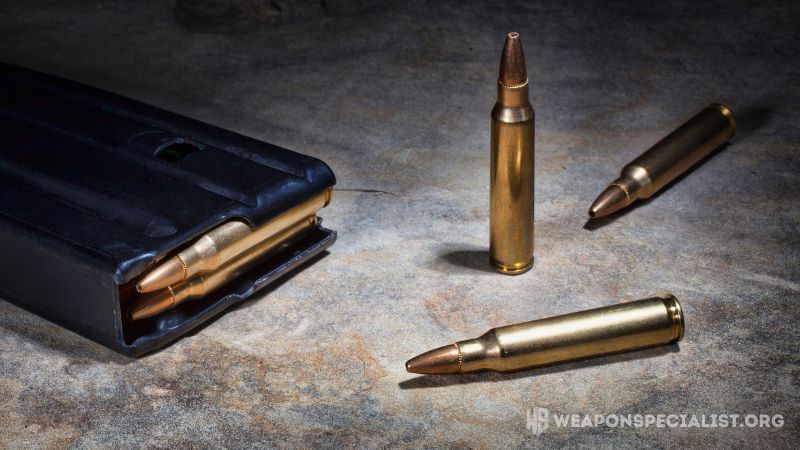
.380 ACP
The .380 ACP (Automatic Colt Pistol) is a popular choice for those who want a smaller caliber than 9mm. It’s often used in compact and subcompact pistols for concealed carry. While the .380 ACP has less stopping power than 9mm, it’s still an effective choice for self-defense.
.38 Super
The .38 Super is a higher-pressure version of the .38 ACP. It’s often used in competition shooting and offers a flatter trajectory than 9mm. However, it’s not as widely available as 9mm and can be more expensive.
.38 Special
The .38 Special is a popular choice for revolvers and is often used by law enforcement. It offers good accuracy and stopping power, but has a higher recoil than 9mm. It’s also more expensive than 9mm and has a shorter effective range.
.357 Sig
The .357 Sig is a high-velocity round that was developed for law enforcement use. It offers excellent penetration and stopping power, but has a higher recoil and is more expensive than 9mm. It’s also not as widely available as 9mm.
9mm Browning Long
The 9mm Browning Long is a less common caliber that’s often used in European firearms. It offers good accuracy and stopping power, but has a lower velocity than 9mm. It’s also more expensive and harder to find than 9mm.
9×18mm Makarov
The 9×18mm Makarov is a popular choice for Eastern European firearms. It offers good accuracy and stopping power, but has a lower velocity than 9mm. It’s also more expensive and harder to find than 9mm.
Overall, there are several calibers that can be used as alternatives to 9mm ammo. Each has its own advantages and disadvantages, so it’s important to consider your specific needs before making a decision. Whether you’re looking for stopping power, accuracy, or affordability, there’s a caliber that can meet your needs.
Special Types of 9mm Ammo
When it comes to 9mm ammunition, there are a few special types that deserve their own section. These types of ammo are unique in their design and purpose, and can be useful in specific situations. In this section, we will discuss two special types of 9mm ammo: shotshell and centerfire.

Shotshell
Shotshell ammo, also known as birdshot or ratshot, is a type of ammunition that is designed for close-range use. It is loaded with small pellets, similar to those found in shotgun shells, that spread out upon firing. This makes shotshell ammo ideal for pest control or small game hunting at close range.
It is important to note that shotshell ammo should not be used in firearms that are not specifically designed for it. Using shotshell ammo in a firearm that is not designed for it can cause damage to the firearm and potentially injure the shooter.
Centerfire
Centerfire ammo is a type of ammunition that uses a primer located in the center of the cartridge base. This type of ammo is the most common type of ammunition used in firearms today. Centerfire ammo is available in a variety of bullet weights and styles, making it a versatile choice for a range of applications.
One special type of centerfire ammo is the Kurz or Corto, which is a shortened version of the 9mm cartridge. These cartridges are designed to be used in firearms that are smaller than standard 9mm firearms, making them ideal for concealed carry or backup weapons.
Overall, shotshell and centerfire ammo are two special types of 9mm ammunition that can be useful in specific situations. It is important to choose the right type of ammo for your firearm and intended use, and to always follow proper safety protocols when handling firearms and ammunition.
The Future of 9mm Ammo
As we look to the future of 9mm ammo, we can expect to see continued innovation in both civilian and combat applications. With advancements in technology and materials, we can expect to see more efficient and effective rounds that offer improved performance and reliability.
For civilians, we can expect to see more options in terms of bullet design and weight. This will allow for greater customization based on individual needs and preferences.
Additionally, we can expect to see continued improvements in accuracy and reduced recoil, making it easier for even novice shooters to handle the 9mm.

In combat applications, we can expect to see continued development of rounds that offer improved penetration and stopping power.
This will be especially important for military and law enforcement personnel who rely on the 9mm as their primary sidearm. We can also expect to see continued improvements in magazine design, allowing for more rounds to be carried in a single magazine.
One area where we may see significant advancements in the future is in the development of smart rounds. These rounds would be able to track their trajectory and adjust their flight path in real-time, allowing for greater accuracy and precision.
While this technology is still in its infancy, it has the potential to revolutionize the way we think about ammunition.
Overall, the future of 9mm ammo looks bright. With continued innovation and development, we can expect to see rounds that offer improved performance, reliability, and customization.
Whether you’re a civilian shooter or a military professional, the 9mm will continue to be a reliable and effective choice for years to come.
Frequently Asked Questions
Q: Are there different types of 9mm ammo?
Yes, there are different types of 9mm ammo. Some of the most popular types include Luger, Makarov, NATO, 380, 38, and 357 Sig. Each type has its own unique characteristics and is designed for specific purposes.
Q: What is the deadliest 9mm round?
There is no definitive answer to this question as the “deadliness” of a round depends on various factors such as shot placement, distance, and the target. However, some of the most popular self-defense rounds include the Federal HST, Speer Gold Dot, and Hornady Critical Defense.
Q: What are the 5 types of bullets?
The five most common types of bullets are full metal jacket (FMJ), hollow point (HP), soft point (SP), frangible, and lead round nose (LRN). Each type has its own unique characteristics and is designed for specific purposes.
Q: What is the difference between 9mm Luger and 9mm NATO?
The 9mm Luger and 9mm NATO are both 9mm cartridges, but there are some differences between them. The 9mm Luger is a civilian cartridge, while the 9mm NATO is a military cartridge. The 9mm NATO is loaded to a higher pressure than the 9mm Luger, which can affect the performance of the round in some firearms.
Q: What are one of the most popular types of 9mm ammo?
One of the most popular types of 9mm ammo is the 9mm Luger. It is widely used by civilians, law enforcement, and military personnel due to its versatility, reliability, and effectiveness.
Q: What are the advantages of each type of 9mm ammunition?
The advantages of each type of 9mm ammunition depend on the intended use of the round. For example, FMJ rounds are great for target shooting and training, while HP rounds are better for self-defense as they expand upon impact, causing more damage to the target. It is important to choose the right type of ammunition for your specific needs and purposes.
9mm ammo comes in various varieties. They are pretty similar, although they have difference types that make them workable with one gun instead of the other.
You can use the 9mm bullet for various purposes, such as varmint clearing, target shooting, or short-range hunting.
Make sure to choose the right ammo for your pistol, as loading the weapon with the wrong bullet can lead to severe damage or even worse.
Thank you for reading!
Last Updated on November 21, 2023 by
